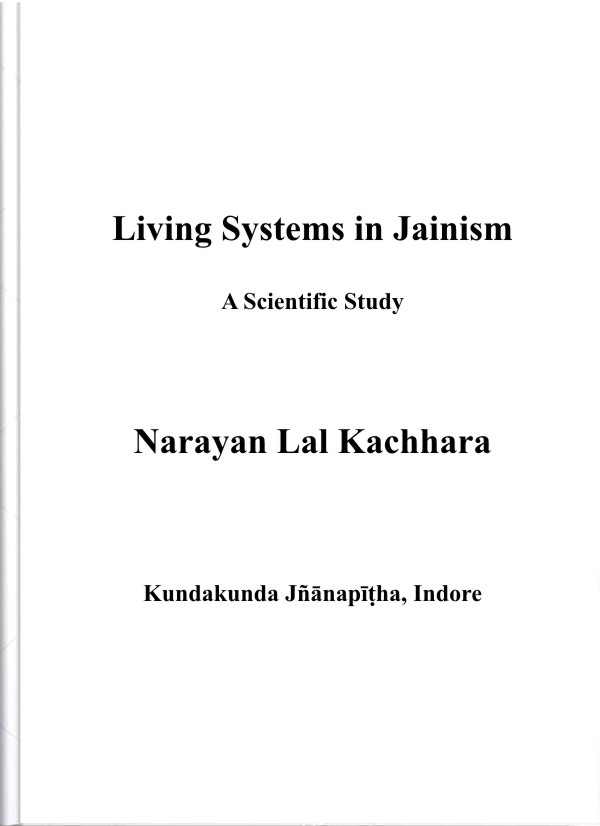Sacred books written or compiled by Jain Acharyas are the rich source of knowledge. These texts and the commentaries written by later Acharyas are now being studied by monks and scholars in various contexts. These sources provide us guidelines and directions for meaningful living, searching the purpose of life and knowing the nature and its interactions with the living beings.
The religious texts are studied from the following points of views:
- Spiritual. The texts were primarily composed for giving the human beings the knowledge for making spiritual progress ultimately leading to the state of permanent bliss.
- History. The texts provide historical information about the ancient period.
- Culture and art. The texts contain information on culture and art of those times.
- Science. The texts contain a treasure of knowledge about the realities of nature and its interaction with the life of living beings. This branch of knowledge earlier studied as philosophy is now known as science.
Traditionally the scholars have been concentrating on the first three aspects of studies and not paying much attention to the fourth aspect. With the advent of modern science this part has gained importance and there is need to study the Aagams and other texts to explore the scientific contents and compare this knowledge with the findings of the modern science. Study of this kind cannot be made in isolation, knowledge of spiritual aspects of religious texts as well as the knowledge of modern science is necessary to properly interpret and understand the writings and putting the ancient ideas in proper perspective with respect to modern science.
Some efforts have been made by recent Acharyas and scholars for scientific study of Jain literature. Acharya Mahaprajna, Acharya Kanaknandhi, Acharya Vijay Nandighoshsuri and Muni Mahendra Kumar II have highlighted the importance of scientific study and have written valuable books on this subject. Scholars like G.R. Jain, N.L. Jain, K.V. Mardia, etc. have also written books on different aspects of scientific knowledge contained in these texts.
Mathematics in some form has traditionally been used by Tirthankara in their teachings. Mathematics was further developed by many Acharyas to support and explain the concepts and doctrines propounded in Aagams. Jain Acharyas occupy a respectable position in the field of development of mathematics in India. This mathematics has been studied in modern context by recent scholars like B.B. Datta, H.R. Kapadia, A.N. Singh, L.C. Jain, Anupam Jain, R.S. Shah, Dipak Jadhav etc. It has been shown that many of the mathematical ideas credited to modern (Western) mathematicians were known to ancient Acharyas many centuries ago.
Modern science is challenging the religious philosophies and has captivated the minds of new generation. In such a scenario the religion that can stand the challenge of modern science is more likely to find acceptance and respect from the people. In this respect Jain philosophy has a unique position among all philosophies as it is based on laws for both the living and the non-living constituents of nature and rejects the idea of any super power like God, the Creator and Controller of the phenomena of universe.
Professor Narayan Lal Kachhara, engineer by background, has been studying Jain philosophy in scientific context and writing articles and books to present the scientific content of Jain philosophy and making their comparison with modern scientific developments. His books like Jain Metaphysics and Science: A comparison and Scientific Explorations of Jain Doctrines are notable contributions in this direction.
The present book of Prof. Kachhara is the pinnacle of his efforts to explore the scientific nature of Jain philosophy and extension of its application to the modern branches knowledge like consciousness studies, psychology, evolutionary biology, epistemological studies, cosmology and human behavior. The author has lucidly presented the Jain ideas in modern style and has examined the possibility of extension of Jain ideas to understand the advancements of modern science in the field of human intelligence, mental faculties, extra terrestrial life, the fate of the universe, etc.
Kundakunda Jñānapīṭha is happy to publish this work of Prof. Kachhara which makes a very interesting reading both to scholars of Jainism as well as of science. It is hoped that the book shall inspire readers and scholars to further explore the scientific contents of Jain philosophy, expand the horizons of our knowledge and establish Jain philosophy as the true source of knowledge, even for modern science to learn from it, and apply this knowledge to the welfare of the entire living class. The book is expected to be a milestone in our understanding of life processes and the universe.
Dr. Anupam Jain
Professor of Mathematics
& Executive Director, Kundakunda Jñānapīṭha,
[email protected]
 Dr. N.L. Kachhara
Dr. N.L. Kachhara
